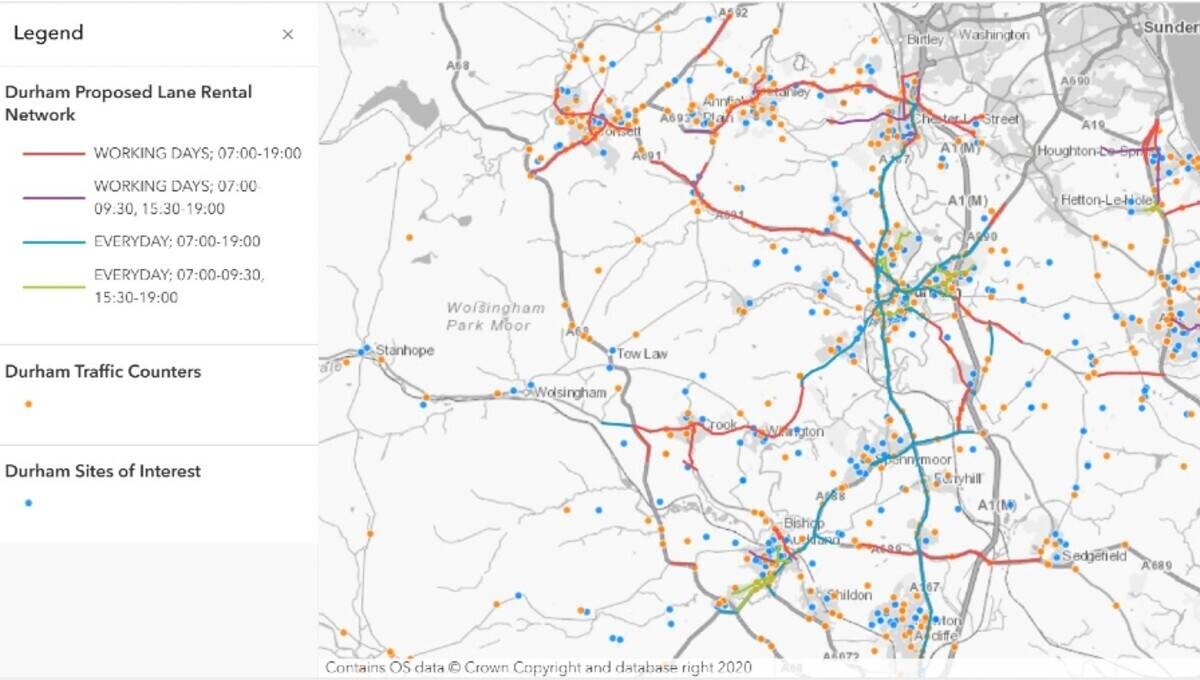South Somerset District Council is pioneering the use of a centralised address database to improve the provision of waste collection services.
Based on the National Land and Property Gazetteer (NLPG), the Council's database contains a unique reference number for every single property, making it much more complete, accurate and up-to-date than current postal addresses. This has proved an essential component of a project to roll out wheelie bins to 70,000 domestic properties and assists with the day-to-day management of waste collections. An additional bonus has been improved customer care through the integration of waste collection details within the Council's Customer First call centre and on the Council's website.
South Somerset District Council began planning the move from traditional black sack weekly collections to fortnightly wheelie bin collections as far back as 2004, although the project only recently reached completion. The challenge faced by South Somerset Council was initially to identify all domestic properties, then identify those properties that were considered unsuitable for a normal wheelie bin and finally to consolidate this information into a central database for use by the Waste Services Unit and other Council departments.
"Even at the start of this project our NLPG data was the most consolidated and mature of the disparate address databases within the Council," said Bruce Soord, Spatial Systems Manager. "The decision to use the gazetteer as the master property list was further enforced by the use of Unique Property Reference Number (UPRN) within departmental databases such as Council Tax. This enabled us to identify all single occupancy residences, for allocation of smaller wheelie bins, at the click of a button."
The NLPG data was further used to identify properties considered unsuitable for standard bins during an extensive field exercise. Council surveyors, equipped with PDA devices loaded with Ordnance Survey maps and the gazetteer running on a mobile Geographical Information System (GIS), identified and recorded all ânon-standard' properties including those properties requiring larger or shared bins, those without storage areas for the news bins and properties without access for refuse collection vehicles. This information was then spatially queried and analysed to sort new collection dates, routes and vehicle allocations.
"The NLPG has played a crucial role in the success of this project," continued Soord. "In fact without it I think we would still be trying to complete the roll out of wheelie bins throughout the district. In addition, as we now have an accurate and integrated Waste Collection system, the information is instantly available to advisors in our Customer First call centre and on our website, improving our customer service levels and supporting our e-Government targets."
13 July 2007
Notes to Editors:
The NLPG was initiated in 1999 to become the master address dataset for England and Wales and the central hub for the 376 address creating Local Authorities and their Local Land and Property Gazetteers (LLPGs). Based on unique property reference numbers (UPRNs) the underlying principle of these gazetteers is to provide a single definitive address database for all departments and systems across a local authority in order to cut costs, improve efficiency and service delivery.
The dataset enables various local authority departments - from revenue collection and environmental health, to social security, the electoral roll and education - to now offer true âjoined up' government. The benefits also go beyond service delivery. Fraud prevention, tax collection and disaster planning all benefit from the fact that each property is given a âUnique Property Reference Number' which transcends (property) numbers, names, descriptions (such as âThe Nursing Home') and postcodes. UPRNs are assigned for the full life of the plot and/or building.
The project was given a significant boost in 2005 with the introduction of the Mapping Services Agreement, which committed all Local Authorities to bringing their gazetteers up to standard and to start submitting regular updates to the NLPG hub for use by national and regional organisations. Collaboration with DNA-S (Definitive National Addressing for Scotland) who use the same BS7666 processes and database schemas means that the a British addressing infrastructure is now a reality.
Intelligent Addressing is a specialist private sector consultancy (an SME) employing recognised experts in addressing. It was originally set up to help develop the National Land and Property Gazetteer (NLPG) on behalf of local government and now manages the NLPG and NSG central data hubs under the terms of the Mapping Services Agreement (MSA) with local government.
Intelligent Addressing Contact:
Gayle Gander, Head of Marketing | Tel: 020 7747 3500 | Email: [email protected] | www.nlpg.org.uk
Editorial enquiries and colour separation requests:
William Allbrook T: 01666 826641 | F: 01666 824668
The Improvement and Development Agency (IDeA) The IDeA works in partnership with all councils, to enhance the performance of the best, accelerate the speed of improvement of the rest, and develop the sector as a whole. IDeA has brokered the Mapping Services Agreement (MSA) with Intelligent Addressing to develop the NLPG and NSG, through the Local Government Information House (LGIH), a wholly owned subsidiary of the Agency.
Working in partnership with the local government community developing national infrastructure projects that enable councils to deliver local services more effectively, LGIH acts as an intermediary between the public and the private sector enabling it to negotiate with private companies on behalf of local authorities in order to provide key parts of a technical infrastructure for improved service delivery.
The NLPG is a joint venture between the Information House and Intelligent Addressing Limited.
IDeA contacts:
Steve Brandwood, Programme Manager | T: 020 7296 6615 | E: [email protected]
Media: Paul Bailey | 020 7296 6529
South Somerset District Council began planning the move from traditional black sack weekly collections to fortnightly wheelie bin collections as far back as 2004, although the project only recently reached completion. The challenge faced by South Somerset Council was initially to identify all domestic properties, then identify those properties that were considered unsuitable for a normal wheelie bin and finally to consolidate this information into a central database for use by the Waste Services Unit and other Council departments.
"Even at the start of this project our NLPG data was the most consolidated and mature of the disparate address databases within the Council," said Bruce Soord, Spatial Systems Manager. "The decision to use the gazetteer as the master property list was further enforced by the use of Unique Property Reference Number (UPRN) within departmental databases such as Council Tax. This enabled us to identify all single occupancy residences, for allocation of smaller wheelie bins, at the click of a button."
The NLPG data was further used to identify properties considered unsuitable for standard bins during an extensive field exercise. Council surveyors, equipped with PDA devices loaded with Ordnance Survey maps and the gazetteer running on a mobile Geographical Information System (GIS), identified and recorded all ânon-standard' properties including those properties requiring larger or shared bins, those without storage areas for the news bins and properties without access for refuse collection vehicles. This information was then spatially queried and analysed to sort new collection dates, routes and vehicle allocations.
"The NLPG has played a crucial role in the success of this project," continued Soord. "In fact without it I think we would still be trying to complete the roll out of wheelie bins throughout the district. In addition, as we now have an accurate and integrated Waste Collection system, the information is instantly available to advisors in our Customer First call centre and on our website, improving our customer service levels and supporting our e-Government targets."
13 July 2007
Notes to Editors:
The NLPG was initiated in 1999 to become the master address dataset for England and Wales and the central hub for the 376 address creating Local Authorities and their Local Land and Property Gazetteers (LLPGs). Based on unique property reference numbers (UPRNs) the underlying principle of these gazetteers is to provide a single definitive address database for all departments and systems across a local authority in order to cut costs, improve efficiency and service delivery.
The dataset enables various local authority departments - from revenue collection and environmental health, to social security, the electoral roll and education - to now offer true âjoined up' government. The benefits also go beyond service delivery. Fraud prevention, tax collection and disaster planning all benefit from the fact that each property is given a âUnique Property Reference Number' which transcends (property) numbers, names, descriptions (such as âThe Nursing Home') and postcodes. UPRNs are assigned for the full life of the plot and/or building.
The project was given a significant boost in 2005 with the introduction of the Mapping Services Agreement, which committed all Local Authorities to bringing their gazetteers up to standard and to start submitting regular updates to the NLPG hub for use by national and regional organisations. Collaboration with DNA-S (Definitive National Addressing for Scotland) who use the same BS7666 processes and database schemas means that the a British addressing infrastructure is now a reality.
Intelligent Addressing is a specialist private sector consultancy (an SME) employing recognised experts in addressing. It was originally set up to help develop the National Land and Property Gazetteer (NLPG) on behalf of local government and now manages the NLPG and NSG central data hubs under the terms of the Mapping Services Agreement (MSA) with local government.
Intelligent Addressing Contact:
Gayle Gander, Head of Marketing | Tel: 020 7747 3500 | Email: [email protected] | www.nlpg.org.uk
Editorial enquiries and colour separation requests:
William Allbrook T: 01666 826641 | F: 01666 824668
The Improvement and Development Agency (IDeA) The IDeA works in partnership with all councils, to enhance the performance of the best, accelerate the speed of improvement of the rest, and develop the sector as a whole. IDeA has brokered the Mapping Services Agreement (MSA) with Intelligent Addressing to develop the NLPG and NSG, through the Local Government Information House (LGIH), a wholly owned subsidiary of the Agency.
Working in partnership with the local government community developing national infrastructure projects that enable councils to deliver local services more effectively, LGIH acts as an intermediary between the public and the private sector enabling it to negotiate with private companies on behalf of local authorities in order to provide key parts of a technical infrastructure for improved service delivery.
The NLPG is a joint venture between the Information House and Intelligent Addressing Limited.
IDeA contacts:
Steve Brandwood, Programme Manager | T: 020 7296 6615 | E: [email protected]
Media: Paul Bailey | 020 7296 6529



